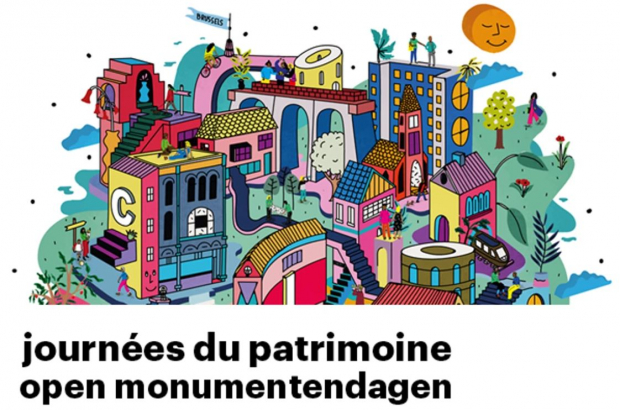- Daily & Weekly newsletters
- Buy & download The Bulletin
- Comment on our articles
Brussels' heritage weekend renamed over 'sexist' connotation
Since the creation of the Brussels region in 1989, the government has organised an annual heritage weekend under the name Journées du Patrimoine/Open Monumentendagen. For the 33rd edition, which takes place on 18 and 19 September, a new name has been chosen for the event: Heritage Days.
State secretary for urban planning and heritage Pascal Smet and his department appear to have a particular problem with the word 'patrimoine', which refers to a male term. Due to this sexist connotation, the decision has been made to change the name.
According to the official literature for the event, “patrimoine literally means 'heritage of the father' and refers to the possessions that are inherited from the father and transferred to the children, sometimes only to the sons.”
“Although this is cultural heritage, the word recalls a time when the woman was kept out of any process of transferring wealth and was financially completely dependent on the man.”
But even in Dutch, the name was no longer correct according to Pascal Smet. Open Monumentendagen (Open Monument Days in English) suggests that it would only be about monuments while there is also other heritage to visit. “The new name, Heritage Days, ensures coherence,” he said.
Not everyone is convinced. "I had never thought that this word could be the subject of discussion,” said Rik Vosters, professor of Dutch linguistics at the Vrije Universiteit Brussel (VUB). “For me, it does not evoke a sexist connotation but if a growing group is experiencing a problem with a word, there's a problem, whether it's good or bad."
According to Professor Vosters, the meaning of language lies in how people feel about it. "The meaning is created in the interaction between speakers and listeners," he added.
Voster's VUB colleague Wim Vandenbussche is not really surprised that certain groups have taken issue with the word patrimony today. "Since the 1960s, there have been militant feminist groups that oppose words that emphasise male dominance in society," he said.
Historically, patrimony does indeed mean 'the inheritance of the father', admitted Vandenbussche. "But it soon became a fairly neutral term for heritage."
"I have the feeling that the government is surfing along on a social movement, the woke movement,” he continued. “It is an activist act with a certain ideological agenda behind it, for which I myself have sympathy. After all, women are all too easily overlooked when it comes to history, art and heritage. It points out that there is a focus on gender equality.
"However, it is not the case that using another term will make the problem disappear and the museums suddenly start to fill with work by female artists. If the government is committed to this, it will have to be demonstrated above all by deeds. And then maybe it could have been a little more creative than choosing an English name."
Vandenbussche and Vosters would have preferred the Dutch word for Heritage Days - Erfgoeddagen – used in combination with a new French-language name. "There is a tendency to choose an English name for events,” said Vandenbussche. “In this way, there’s hope that it will attract an international audience. Here it might just be a useful solution to get around the discussion about the word ‘patrimoine’."
Brussels MP Cieltje Van Achter from the Flemish N-VA party also regrets the choice of an English name. "It is a conscious policy of this government to Anglicise everything," she said.
However, she added that she was pleased that a few days after the Heritage Days, Matrimonium or female heritage days will also be organised this year, with the support of the region. This is the result of a resolution that was voted on in the Equal Opportunities Committee at the beginning of this year with the aim “to make the women behind our heritage visible."


















